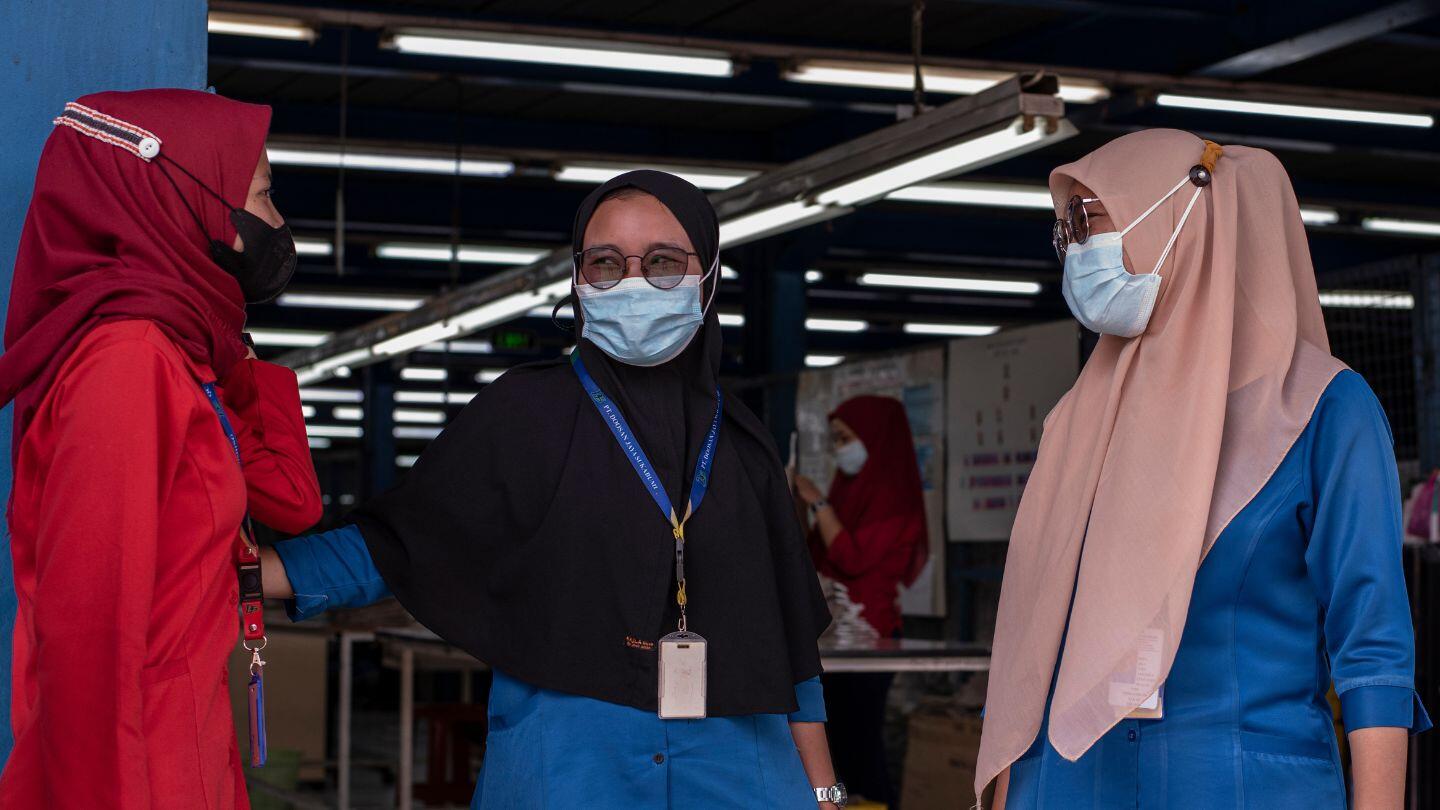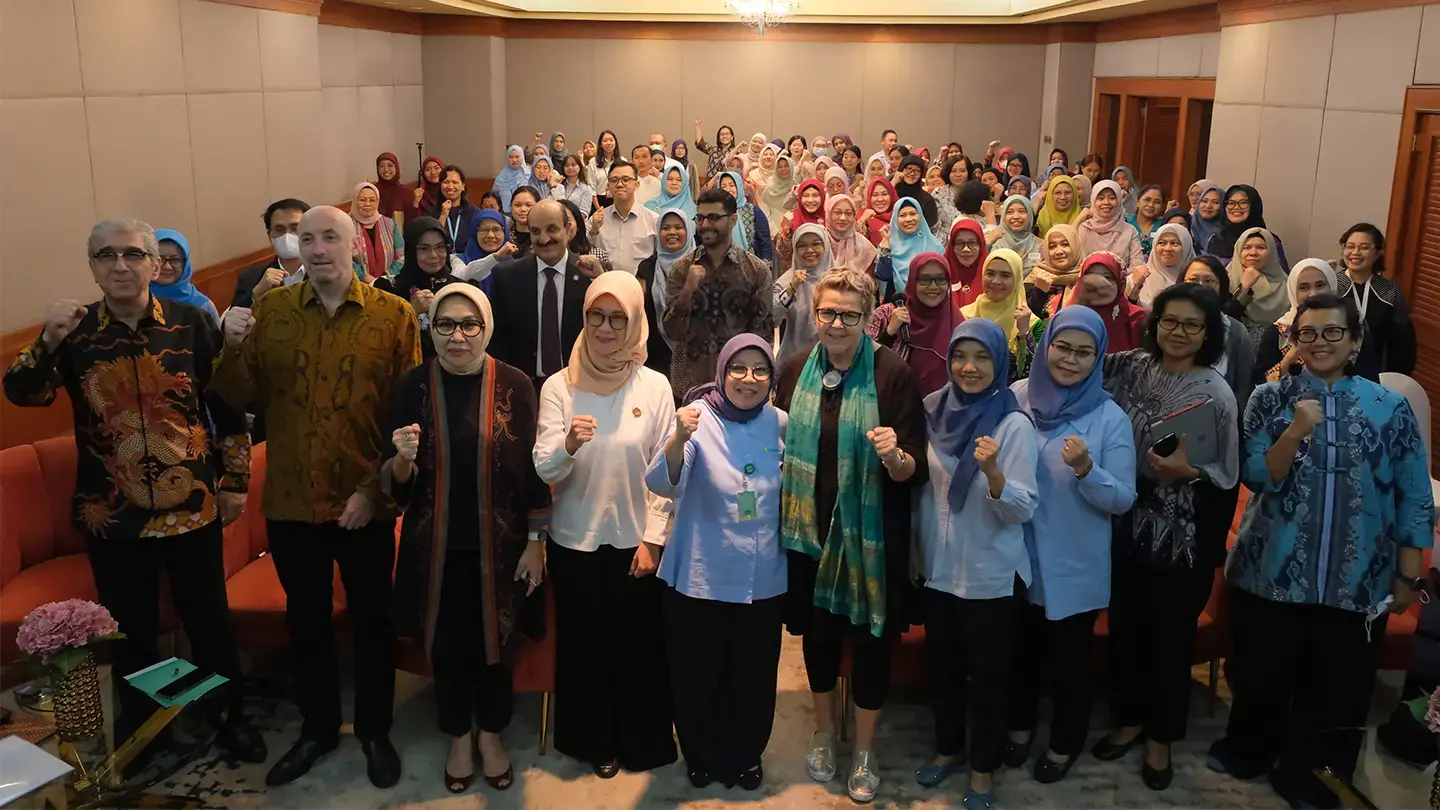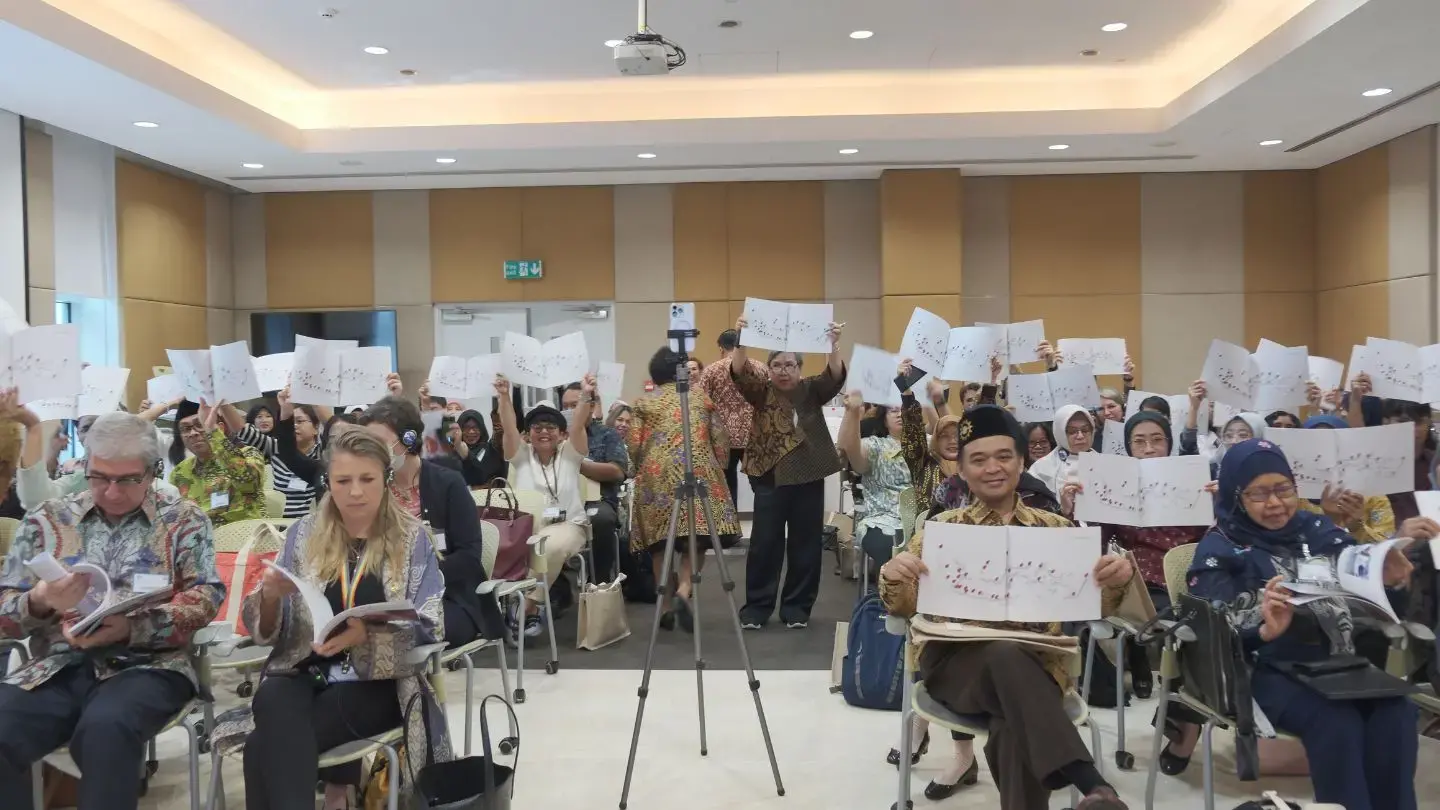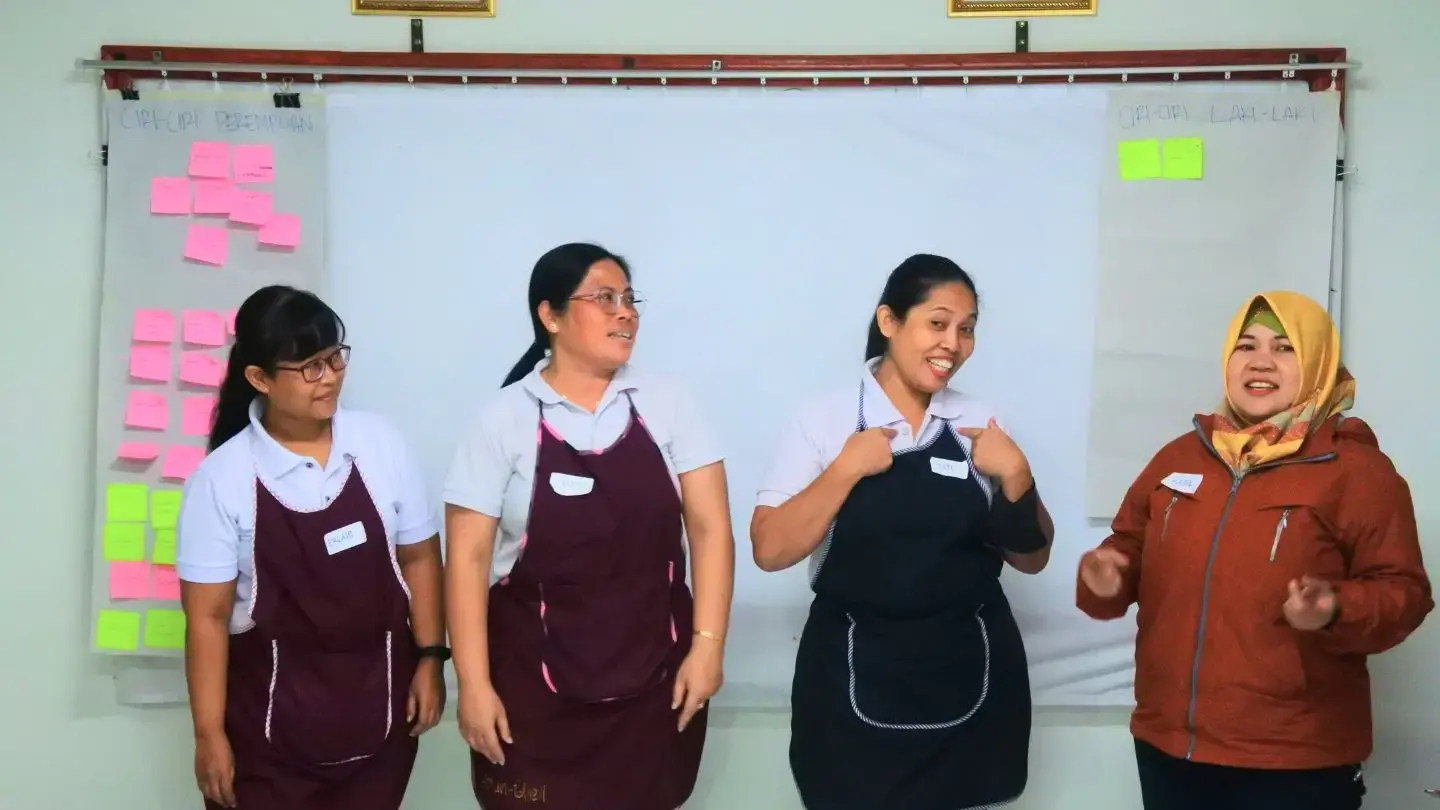Syifa Chaerunnisa never imagined herself becoming a peer promoter for reproductive health at work. The 23-year-old woman first learned about women’s reproductive health in high school, where she was taught about the process of fertilization between sperm and ovum cells, and related diseases such as sexually transmitted infections (STIs) and cervical cancer. She used to think that discussing sexual and reproductive openly health issues is a taboo.
It all changed after she participated in a training programme on Women’s Health and Well-Being (WEALTH) in 2019 held jointly by the H&M group, United Nations Population Fund (UNFPA), and Indonesian Planned Parenthood Association (PKBI) DKI Jakarta, at PT Doosan Jaya Sukabumi factory where she has worked as a receptionist for five years.
From the WEALTH training, Syifa considerably improved her reproductive health knowledge. For example, she learned that the use panty liners should only be limited to helping absorb vaginal discharge, and that excessive and improper use of panty liners can cause irritation to the vagina’s outer skin and itching due to its chemical composition. With the new knowledge, Syifa has now reduced the use of panty liners and other habits that affect her reproductive health.
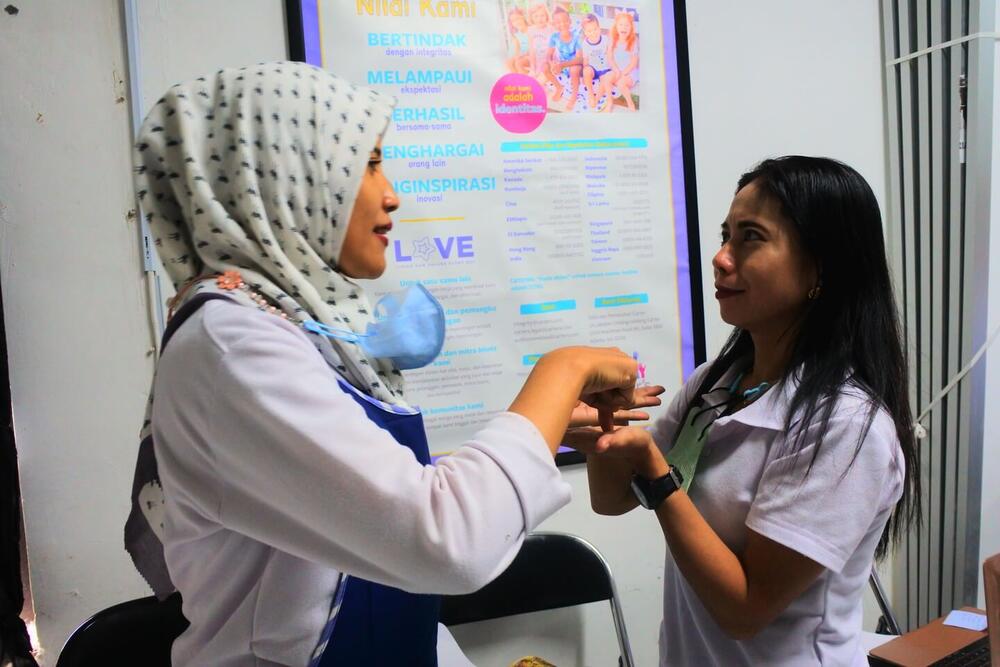
But more profoundly, through the programme Syifa gained the awareness of women’s vulnerabilities to gender-based violence and their right to sexual and reproductive health information and services. She knew that reproductive health is essential for her and her colleagues to maintain their overall health, and to perform well at work.
Syifa now proudly bears her new responsibility as a promoter of women's reproductive health and advocate for gender-based violence prevention at work.
Through the WEALTH programme, not only did Syfa get to improve her gender and reproductive health knowledge, she also had the opportunity to share her newfound expertise with her colleagues at PT. Doosan Jaya Sukabumi. Syifa became one of the resource persons in reproductive health training that reached 10 participants in each session. Prepared to make the sessions as informative as possible, Syifa involved a nurse from the factory’s clinic in the training to answer medical questions.
Syifa found that through this information dissemination activity, she trained her confidence to speak in public, convey information to others, and discuss important issues that were previously considered taboo. She has gained confidence in providing reproductive health learning materials that are reliable, easy to understand, and comprehensive, which covers the medical, personal and social aspects such as nutrition, rights, and gender.
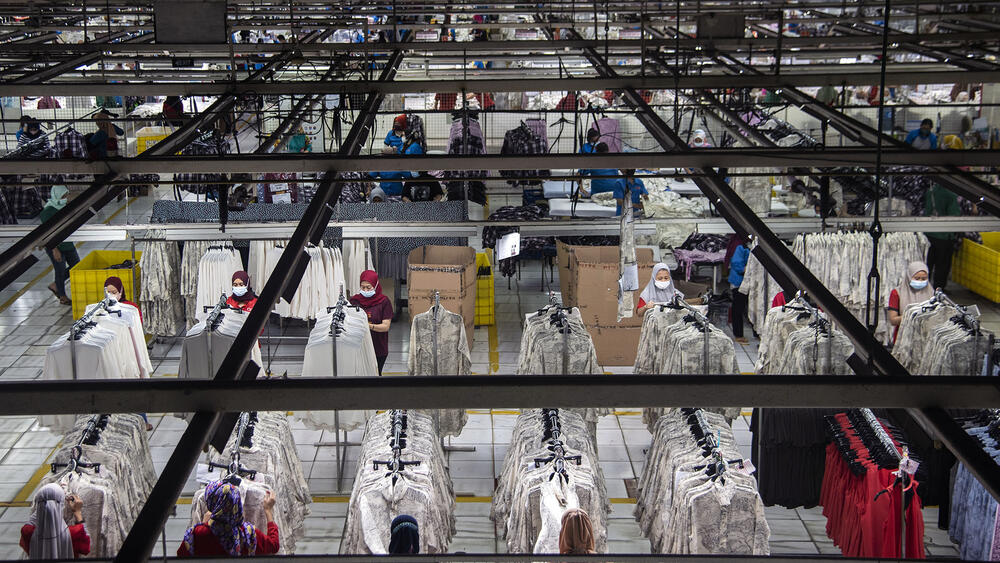
If we change partners or have unsafe sex, we can be at risk of contracting sexually transmitted infections (STIs) and HIV, and you are at risk due to your partner’s behaviour,
- Syifa said firmly.
Syifa also practiced her knowledge on gender equality and bodily autonomy by being more respectful to others and more mindful of the way she speaks in her everyday communication with colleagues and her duty as a receptionist. A peer promoter at work, Syifa has been trusted by her friends to consult or confide in on gender-based violence issues. When her best friend told about her partner's cheating and verbal abuse,
Syifa helped her friend understand the issue better and identify that the psychological and social violence she experienced was caused by gender inequality. Syifa also bravely suggested her best friend do a health check, specifically an HIV test. “If we change partners or have unsafe sex, we can be at risk of contracting sexually transmitted infections (STIs) and HIV, and you are at risk due to your partner’s behaviour," Syifa said firmly.
To this day, Syifa continues disseminating sexual and reproductive health information and providing training to her colleagues at the factory. For her self-development, she is eager to deepen her knowledge so she can be a better peer health promoter. “I am motivated to learn more reproductive health materials from various sources,” she said.

